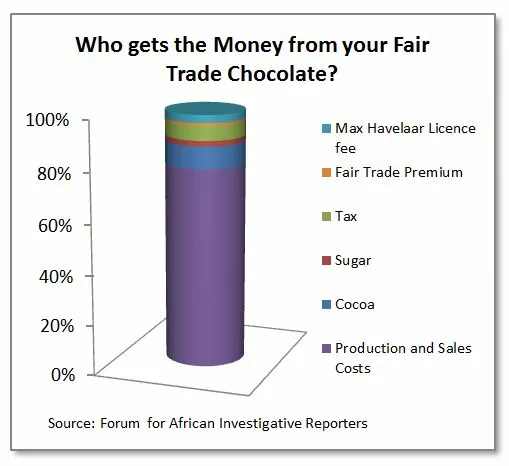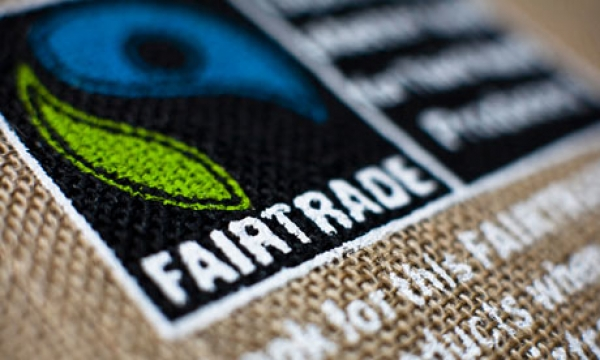So Fair Trade is not aid in the strict sense that I have been considering in the last few posts but it is a major movement in the effort to improve the standard of living of producers in developing countries.
Fair Trade has been lauded as providing a decent price to farmers who would otherwise be at the mercy of huge corporate buyers able to exploit the smaller producer. The concept is simple - add a few pence to the price of chocolate bars and other goods in wealthy countries so that manufacturer can offer producers a few pence above market rates and help them make a decent living.
What could possibly be wrong with such a scheme? The benefits are evident and publicity for the work of the Fair Trade Organisation huge. In what comes next I make no attempt to give a balanced view. There are benefits to Fair Trade but so much has been written about the benefits and so much appears self evident it seemed time that the balance was redressed some what.
Fair Trade Costs Farmers
- In order to benefit from Fair Trade prices, farmers must join a cooperative. This can be hard in some areas, can cost money and may not be a viable option for some very small or less organised producers. Farmers not part of these cooperatives are unable to access the premium price and may even receive a lower price than before.
- Fair Trade encourages over supply but offering a price above the market price. This surplus depresses market prices meaning that even with the Fair Trade premium, individual farmers may be receiving less than they would have in the absence of the Fair Trade movement.
- Fair Trade certification also has other requirements such as no GM ingredients that would have reduced the need for costly fertilisers, and a ban on child labour. While this may seem desirable, few families send their children to work from choice, most only do so as without this income they cannot survive.
Fair Trade Costs Communities
If farms producing food for export earn a premium then many farmers will switch from producing staple food crops to (artificially) valuable export crops. This creates shortages, increases living costs and promotes reliance on food aid. Producers may find the higher wage they earn compensates for the increase in food prices but others in the community will simply find it harder buy what they need to survive.
Fair Trade is not Evidence Based
All sorts of claims are made about Fair Trade but an independent report for the Institute of Economic Affairs found that there are many case studies of the benefits but that there is no research to demonstrate that:
- The benefits are as large as the premium paid by western consumers
- The premium has lead to any increase in living standards
- Non-Fair Trade producers are not harmed
- The case studies put forward are representative of most producers.
- There is not a better way to promote growth in living standards.
Fair Trade Benefits the Founder not the Producer.

They claim that of the roughly 7.5 cent premium on a $2.50 chocolate bar, 6 cents goes to the licencing company and only 2.5 cents go to the cooperative supplying the cocoa beans. That 2.5 cents needs to cover the costs of any changes required and the membership and running of the cooperative before the farmer sees an increase in income.
Max Havelaar, the company who administers the Fair Trade logo made over $520,000 in 2009 from licencing fees alone, more than twice what was paid to the producing cooperatives.
These are just some of the objections to Fair Trade which might make you consider just who is benefiting from your 'ethical' cup of coffee and chocolate biscuit.




